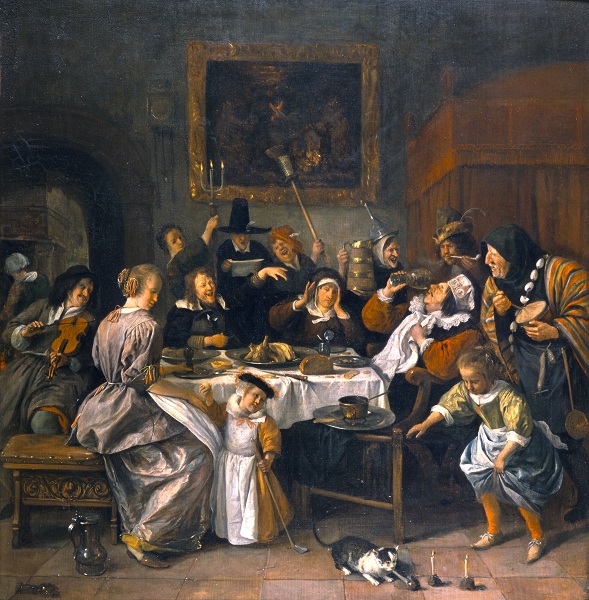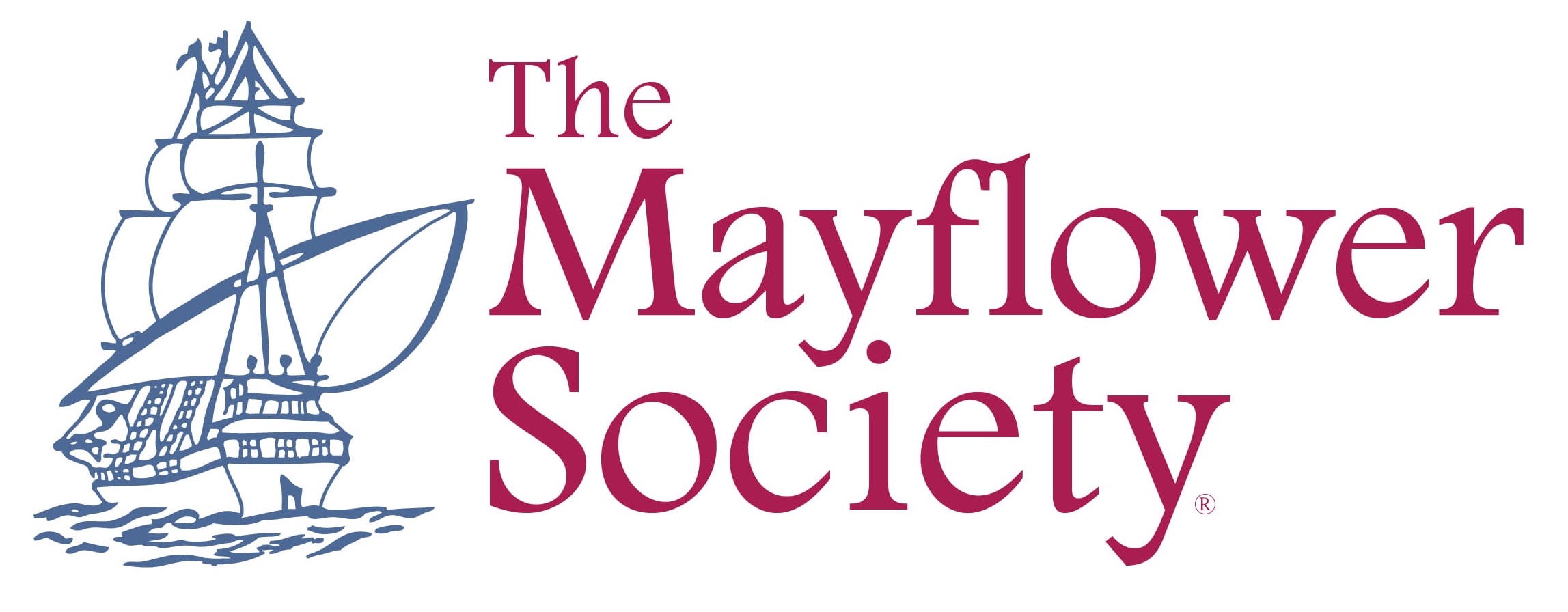
Twelfth Night aka Epiphany Eve
Depending on the denomination and what they considered the first day of Christmas, January 5th is known as Twelfth Night, the last night of the Twelve Days of Christmas. In England during the 17th century the Christmas season was a twelve day long celebration that led up to Epiphany. In many places Twelfth Night, rather than Christmas, became the bigger night of revelry and festivities. There are many traditions from this time period associated with the season, but we will focus on two; Wassailing and the Lord/Lady of Misrule, and how they helped influence the way the Pilgrims perceived the holiday.
Wassail is a word derived from Old English and Norse phrases used to toast to one’s good health and fortune. By the 17th century it became synonymous with the spiced drink used to give such toasts. The act of wassailing, as it became called, is an ancient one dating as far back as the middle ages. One part Christmas caroling, one part trick or treating; the exact traditions and songs vary from region to region but all follow the same basic concept. Wassailers go from house to house singing festive songs and offering toasts in exchange for food and drink. More often than not the wassailers were of a lower social class than the more affluent houses they visited. Gifts of food and the wassail itself was provided by the house, while the wassailers brought the wassail bowl, often made of wood, and the songs. Sometimes these festivities turned more destructive however, as the wassail itself was most often alcoholic, and as such the occasional vandalism, drunkenness, and lewd behavior all combined make the tradition unpopular with Puritans and Separatists in England and America.
Another tradition of Twelfth Night is the baking, and sometimes eating, of a Twelfth Night Cake. This cake, also known as a Kings Cake or Three Kings Cake, was often eaten either on Twelfth night or the next day during Epiphany. While having cake during the 17th century was in itself something special, this cake had a particular surprise baked inside, a bean. Whoever found the bean was made the Lord/King of Misrule. Later on in the 17th century a pea was added and whomever found it was the Lady/Queen of Misrule. The Lord/Lady of Misrule proceeded over the rest of the night’s festivities and in many places led processions and mummer plays during Twelfth Night and Epiphany. Much like Wassailing, this sometimes led to the same problems, and such processions and plays, and thus Lords/Ladies of Misrule, were not popular with Puritans and Separatists. Which brings us to the Pilgrims and how they may have viewed Twelfth Night and the Christmas season in general.
All of the Pilgrims would have been familiar with the Twelve Days of Christmas, and thus Twelfth Night, even if the Separatists amongst them would not have recognized its validity as a holiday. The reformed church that many of the Pilgrims belonged to only recognized Sabbath (for them Sunday) to be holy. As such they felt that while many of the things celebrated during Christmas are in the bible, a specific date was not. To the reformed church Sunday was the day to celebrate all things God and there shouldn’t be any particular days set aside as more important. In addition, reformed churches and Puritans both in England and New England felt many of the traditional festivities, such as wassailing, revelry, and general idle game playing, to be superstitious, pagan and sinful. To them, unless the holiday fell on a Sunday, in which case people should be at church all day, people should be working.
During the early years of Plymouth colony we can see examples of this. The best known incident occurred in 1621, which William Bradford writes about in Of Plimoth Plantation.
“On the day called Christmas Day, the Governor [Bradford] called them out to work as was used. But the most of this new company [from the Fortune] excused themselves and said it went against their consciences to work on that day. So the Governor told them that if they made it a metter of conscience, he would spare them till they were better informed, so he led away the rest and left them. But when they came home at noon from their work, he found them in the street at play, openly; some pitching the bar, and some at stool-ball and such like sports. So he went to them and took away their implements and told them that was against his conscience, that they should play and others work. If they made the keeping of it matter of devotion, let them keep their houses; but there should be no gaming or reveling in the streets. Since which time nothing hath been attempted that way, at least openly.”
Looking at this passage it can be seen how both the reformed church Pilgrims and the Church of England Pilgrims viewed the Christmas season. Yet despite their differing opinions on the matter, Governor Bradford decided to keep the situation a matter “…of mirth rather than weight” and only forbid open revelry thus keeping the peace. As such we do not know if Pilgrim families who were not members of the reformed church continued to keep their Christmas traditions, quietly and inside their homes.
